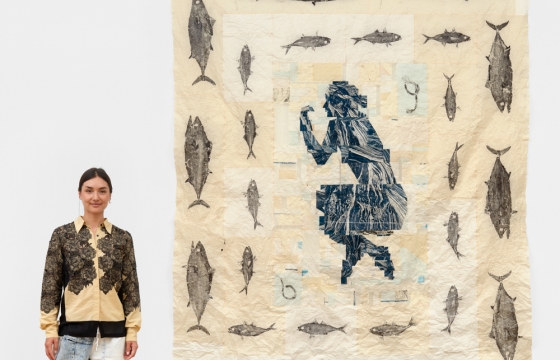
"Alexa Kumiko Hatanaka's printed-paper textile works explore the intersections of environmental fragility, cultural resilience and mental health, drawing deeply from her personal experience living with bipolar disorder. Developed during artist residencies at Kashiki Seishi, a family-run handmade washi paper mill in Japan, and at Black Rock in Senegal, Hatanaka's work incorporates traditional craft techniques, of over 1000 year histories, rooted in environmental stewardship-practices that are increasingly endangered."
"Hatanaka's work has turned toward exploring how climate change may also be shaping our 'inner landscapes.' Living with bipolar disorder, she is particularly interested in how such conditions may have evolved and why they persist. In recent years, research into the evolutionary origin of this condition suggests that it may have developed during the last Ice Age as an adaptive response to extreme climate variability, allowing for periods of shutdown or hibernation to conserve energy."
Alexa Kumiko Hatanaka creates printed-paper textile works that examine environmental fragility, cultural resilience and mental health, rooted in her experience living with bipolar disorder. The works were developed during residencies at Kashiki Seishi, a family-run handmade washi paper mill in Japan, and at Black Rock in Senegal. The practice incorporates traditional craft techniques with histories over a thousand years and emphasizes environmental stewardship practices that face endangerment. The work references ice and water in the high Arctic where Hatanaka conducted community-engaged projects. Hatanaka uses naturally dyed, printed and sewn washi paper, including sheets imprinted with gyotaku fish prints. Several works employ her signature method of sewing hundreds of washi scraps into life-sized silhouettes of her own body. Research into bipolar's evolutionary origins suggests adaptive responses to past climate variability and informs questions about contemporary emotional and pathological language shifts.
Read at Juxtapoz
Unable to calculate read time
Collection
[
|
...
]